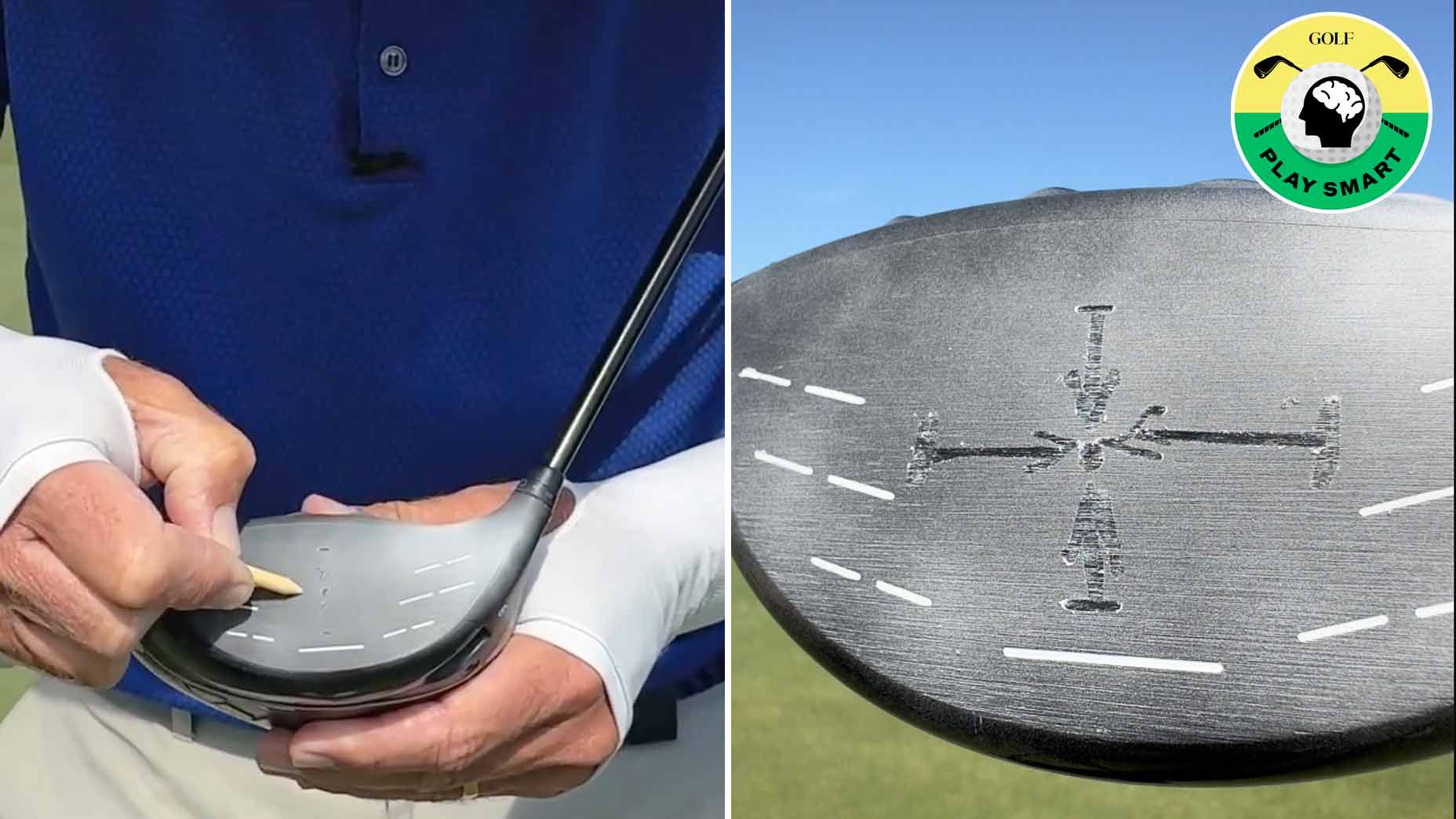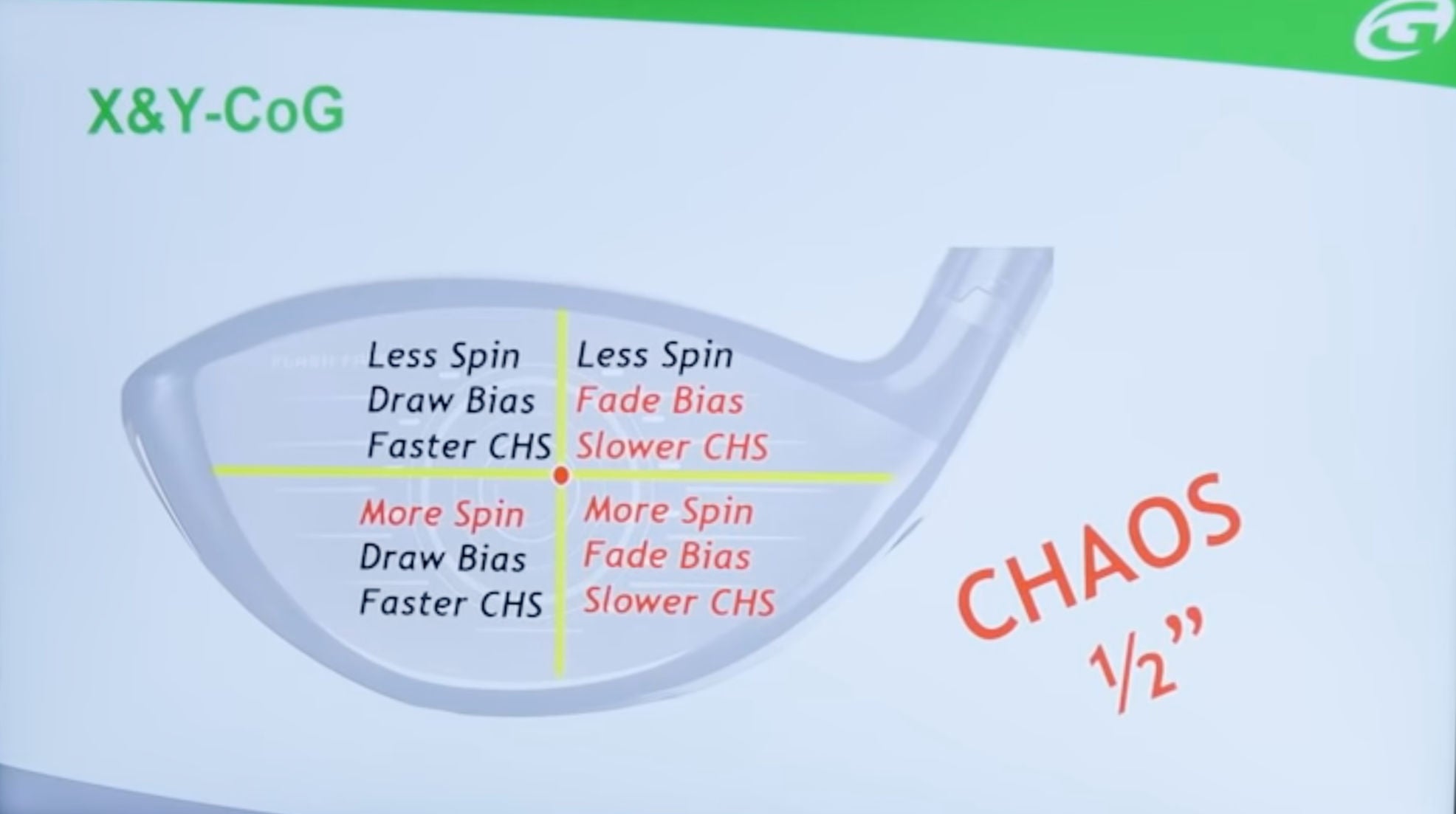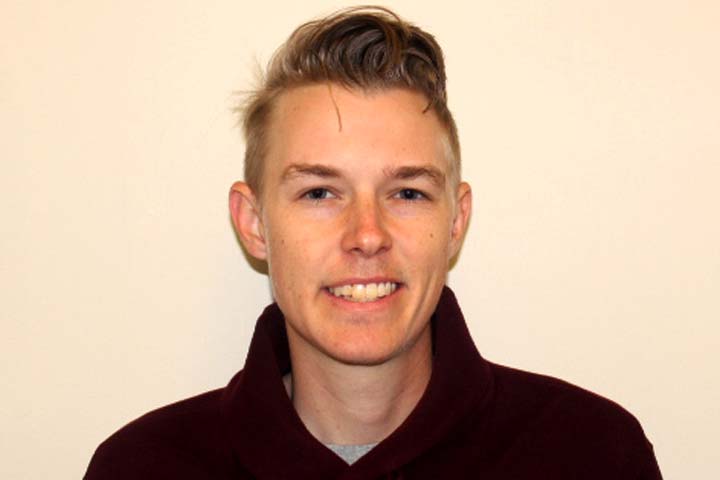How impact location affects spin rate, explained in 1 minute
- Share on Facebook
- Share on Twitter
- Share by Email

The ball will spin in different directions based on where you hit the clubface.
@AndrewRiceGolf / X
InsideGOLF: +$140 Value
Just $39.99
The ball will spin in different directions based on where you hit the clubface.
@AndrewRiceGolf / X
Welcome to Play Smart, a regular GOLF.com game-improvement column that will help you play smarter, better golf.
Mis-hitting your driver is inevitable. Unless you are a pro (or a very high-level amateur), the likelihood that you have a wear pattern right on the center of the driver face is slim at best.
Luckily for you, modern technology has made drivers incredibly forgiving. And with a clubface larger than any other club in the bag, you’ve got some wiggle room when you do produce a strike that’s off-center.
Is it better to miss a drive on the heel or toe? Here’s what the robot saysBy: Jonathan Wall
But while the driver face is quite large, there are certain spots that are better to hit than others. Closer to the center is best (duh), but even if you get away from that sweet spot, there are certain areas that are better than others.
Our GOLF.com gear guru Jonathan Wall has done some testing on just this subject in year’s past, and the findings are quite interesting. If you’re a club nerd that’s fascinated by gear effect and the like, checking out the robot testing is well worth your time.
If you don’t want to get too far in the weeds on the gear side of things, we’ve got you covered as well. GOLF Top 100 Teacher Andrew Rice recently posted a video explaining the basics of how spin rate is affected by strike location — and it’s well worth your time if you want a rudimentary crash course.
Impact location matters with all clubs, but it’s important to understand how impact location will affect ball flight with the ‘headcover’ clubs. pic.twitter.com/lRlMQboGlo
— Andrew Rice (@AndrewRiceGolf) September 2, 2024
Missing the center of the face with the driver is inevitable, but if you can miss in the right spots, you can mitigate the damage.
Gear effect — i.e. the way the face twists after impact during an off-center strike — plays a huge role in your ball flight (you can read more about the phenomenon here). The subject can be a bit complicated, but Rice sums up the way these off-center strikes affect spin rate well.
“If I hit the ball lower on the clubface, the spin rate moves up,” Rice says. “If I hit the ball higher on the clubface, the spin rate comes down.”
The same phenomenon is true when your strike is on the toe or the heel. The ball will spin in the toward the center of the clubface on off-center hits. You can see a good breakdown of it all below.

How can this help you on the course? Well, it’s particularly good knowledge to have when trying to hit different shot shapes. For example, if you’re trying to hit a draw, you can attempt to hit the ball more off the toe, and vice versa with a fade.
Having this knowledge is key for understanding your ball flight — and can be used as a weapon for shaping the ball off the tee.

Golf.com Editor
Zephyr Melton is an assistant editor for GOLF.com where he spends his days blogging, producing and editing. Prior to joining the team at GOLF, he attended the University of Texas followed by stops with the Texas Golf Association, Team USA, the Green Bay Packers and the PGA Tour. He assists on all things instruction and covers amateur and women’s golf. He can be reached at zephyr_melton@golf.com.